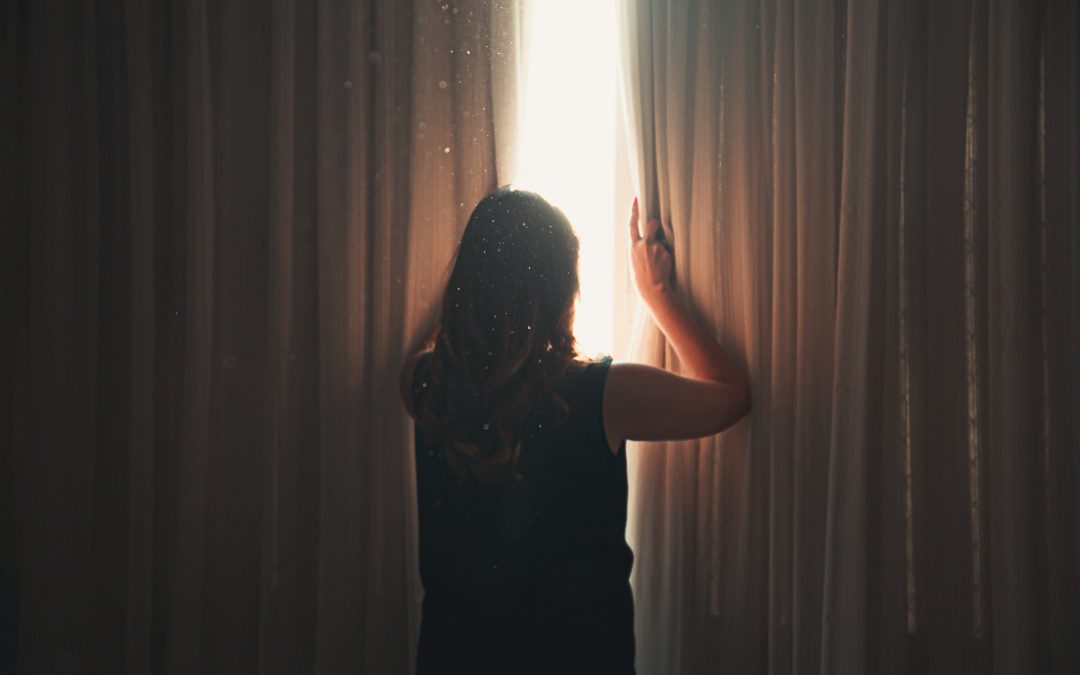Coping Tips For Staying Home And Embracing The Unknown With Optimism
Originally published May 18, 2020 on thriveglobal.com
We have begun to adjust to a new way of living, dealing with all the unknowns and adjusting to an ever-changing “new normal”. A key component of our adjustment is the realization we must endure a litany or unknowns and “I don’t know” elements for an indefinite time. Not just for a few months, but possibly for years. However, instead of focusing on the pandemic, we need to focus on adapting to the unknown. Sometimes, it is hard to come to grips with how many people are actual “guessing” much of the time and the limitations of science. What we can do as a people is seize this opportunity to lean into our personal strengths and power to combat our common enemy.
We face some similar adverse concerns and challenges in finding answers to unknowns that have affected what use to be, “our normal” behavioral habits. I’ve identified several unknowns that we’re all being challenged by; how we socially interact with each other, how we consume and experience live entertainment/sports in public places, how we conduct work either at home or the workplace, and how we confront and deal with our health fears. I have also offered some tips and suggestions of how we can better cope and self-care for ourselves.
HOW WILL OUR SOCIAL INTERACTIONS CHANGE?
The landscape of social interactions will most likely change dramatically. I have noticed that by and large family systems are becoming stronger, social relationships are deepening despite the distance and old friendships are being re-cultivated. Once the opportunity arises to relax restrictions, I believe that the trend will continue in this vein. People will have adjusted to smaller social interactions and may find large social events over stimulating or unsafe, at least initially.
How to cope:
When adjusting to our new normal for social options, a stepwise progression makes the most sense. It will allow your brain to adapt to the mandated changes in the amount of people, proximity to people, that are allowed. This is especially important because it can help our brains become more and more adept at accommodating to quick changes in social protocols.
SHOULD I TAKE THE RISKS OF ATTENDING A MAJOR PUBLIC ENTERTAINMENT/SPORTING EVENT?
As the world relaxes, I think the re-start button many people pressed on looking inward, not just outward for entertainment, will remain for some time. In an article by Lally, Van Jaarsveld, Potts and Wardle entitled “How are habits formed: Modeling Habit Formation in the Real World,” they note that lasting changes in behavior patterns take an average of 66 days. Since the pandemic has gone on longer than anticipated, people’s brains are adjusting to new types of entertainment. Hence, with new data and predictions about our safety being at risk, people naturally feel more threatened by attending events held in arenas and stadiums.
How to cope:
As some form of social distancing remains in place, many people will continue to seek virtual options via the major social media platforms, digital entertainment outlets, and sites that offer opportunities to simultaneously connect you to your favorite music artists, sports teams etc. At first, it is likely attending events at stadiums will be done on a reduced occupancy basis. This slow progression back to what was normal will help your brain assimilate to new changes as they occur.
WHAT WILL MY WORK SCHEDULE AND WORKPLACE LOOK LIKE?
A staggering percentage of people are unemployed, and many other people are learning how to adjust to new work paradigms. One of our biggest challenges is to avoid turning our homes into workplaces and to strike a healthy and safe work/life balance in the home.
How to cope:
Designate a workspace (a desk, a room), creating artificial “commuting time” for meditation or some other form of transition time. Structure your day to include breaks. The workplace will be an everchanging organism as some people go back to work, some will work from home full-time, and others will split their days with coworker’s. All require thoughtfulness about how to create an effective work/life balance and sensitivity to others at home or in the workplace. Be creative, empathetic, and patient. Remember people will still earn vacation time.
SHOULD I BE WORRIED THAT MY HEALTH FEARS MAY NOT GO AWAY?
Hopefully, over time people’s health fears will continue to be less of a factor in our everyday lives. What that means in terms of necessary precautions is hard to predict. We do not know how we will react to the possibility of a second wave occurring. Particularly, if it is comparable to the initial breakout, or even worse. Will the reaction be the same or muted? People can become desensitized to an oversaturation of fear that lasts for a long time. Medical News Today talks about how mental exhaustion can lead to numerous emotional symptoms including apathy. Dissociated or detached responses to stressors are a common way to cope with traumatic events and move on. For that reason, a lot of people’s reactions are less vivid and flatter at this point.
How to cope:
Each individual person can cope by making decisions for themselves that feels right to them. Maybe this belief in our personal decision-making will allow us to flourish, not just during the pandemic, but in life. Out of the pandemic maybe we will trust ourselves a little bit more instead of delegating that trust. Within that there is optimism and hope.
